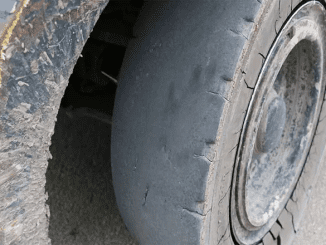Teeth grinding, also known as bruxism, is a common condition that affects millions of people worldwide. While occasional teeth grinding might seem harmless, frequent or severe cases can lead to serious dental and health complications. But is it just a normal habit, or could it be a warning sign of an underlying health issue? Let’s dive deep into the causes, risk factors, and traditional remedies for bruxism to understand its impact and how to manage it effectively.
Understanding Sleep Bruxism – What Is It?

Bruxism is an involuntary movement of the jaw, often characterized by grinding or clenching of the teeth, particularly during sleep. Many people are unaware they even have this condition until a dentist points out signs of wear on their teeth or a partner notices the sound at night. While mild cases may not require treatment, severe bruxism can cause jaw disorders, damaged teeth, and even chronic headaches.
Main Causes of Bruxism (Teeth Grinding) During Sleep
Bruxism is a multifactorial condition, meaning it can stem from various causes. Let’s break down the key factors contributing to this condition.
Stress and Anxiety – The Leading Cause of Bruxism
One of the most significant contributors to teeth grinding is stress. When the body experiences high levels of anxiety, the nervous system reacts by increasing muscle activity, including the jaw muscles. Stress disrupts sleep patterns and can trigger involuntary jaw contractions, leading to grinding and clenching at night. People under excessive stress often wake up with sore jaws or headaches, a telltale sign of bruxism.
Genetic Factors – Is Bruxism Inherited?
Genetics plays a crucial role in sleep bruxism. Studies indicate that around 21% to 50% of people who grind their teeth have a family history of the condition. If your parents or siblings suffer from bruxism, there’s a higher likelihood that you might experience it too. While genes alone don’t guarantee bruxism, they do increase susceptibility, especially when combined with other factors like stress and lifestyle habits.
Medication and Stimulant Use – Are Your Habits Making It Worse?
Certain medications and stimulants can increase the risk of teeth grinding. Some antidepressants, particularly selective serotonin reuptake inhibitors (SSRIs), are known to cause bruxism as a side effect. Additionally, lifestyle habits such as tobacco, caffeine, alcohol, and recreational drug use can heighten the chances of developing this condition. These substances overstimulate the nervous system, leading to increased muscle activity, including jaw movement during sleep.
Systemic Health Factors – Is Bruxism a Sign of an Underlying Disease?
Bruxism is often linked to other health conditions, making it more than just a bad habit. Some common systemic health factors associated with bruxism include:
- Sleep Apnea – Individuals with obstructive sleep apnea (OSA) are more likely to suffer from teeth grinding due to interrupted breathing patterns that affect muscle control.
- Neurological Disorders – Conditions like Parkinson’s disease and Huntington’s disease can contribute to bruxism due to involuntary muscle movements.
- Mental Health Disorders – Depression and serotonin imbalances in the brain are known triggers for bruxism, as they affect sleep quality and nervous system function.
- Children and Worm Infections – Some studies suggest that in children, intestinal parasites and worm infections can cause bruxism, though the exact reason is still being researched.
Traditional Methods to Reduce Bruxism Naturally

While medical treatments exist, many people prefer natural methods to reduce bruxism and protect their teeth. Here are some effective traditional remedies.
Drinking Herbal Tea Before Bed
Herbal teas such as chamomile and peppermint tea have natural relaxing properties that help soothe the nervous system and reduce stress levels. A warm cup of herbal tea before bed can ease muscle tension, potentially minimizing teeth grinding during sleep.
Practicing Yoga and Meditation
Since stress is a significant trigger for bruxism, incorporating yoga and meditation into your daily routine can be incredibly beneficial. These practices promote relaxation, improve sleep quality, and reduce the likelihood of involuntary muscle contractions.
Using Essential Oils for Relaxation
Applying lavender or peppermint essential oil to the jaw area before bedtime can help relax the muscles and decrease bruxism episodes. Massaging these oils gently into the skin improves circulation and soothes the nervous system, making it an excellent holistic approach.
Adjusting Your Diet – The Role of Calcium and Magnesium

Diet plays a crucial role in muscle function. A deficiency in calcium and magnesium can contribute to muscle spasms, including jaw clenching and teeth grinding. Consuming foods rich in these minerals, such as:
- Milk and dairy products
- Almonds and walnuts
- Leafy green vegetables like spinach and kale
can significantly improve oral health and reduce bruxism symptoms.
Wearing a Mouth Guard – Protecting Your Teeth While Sleeping
For severe cases, a custom-made mouth guard is one of the most effective ways to prevent dental damage caused by grinding. These devices create a protective barrier between the teeth, absorbing the pressure from grinding and minimizing wear and tear. While it doesn’t stop bruxism, it prevents its harmful effects on the teeth and jaw.
Why You Shouldn’t Ignore Bruxism
Ignoring teeth grinding can lead to severe consequences, including:
- Tooth damage – Enamel erosion, fractures, and increased sensitivity
- Jaw pain and TMJ disorders – Chronic jaw pain and difficulty opening and closing the mouth
- Headaches and earaches – Tension headaches and ear pain due to excessive muscle strain
- Poor sleep quality – Frequent awakenings and restless sleep, leading to fatigue
Bruxism isn’t just a harmless habit—it’s often a symptom of something deeper. Whether it’s stress, a medical condition, or an underlying sleep disorder, identifying the root cause is essential for effective treatment.
Final Thoughts – Is Bruxism Normal or a Health Concern?
Teeth grinding during sleep can be a normal response to stress, but frequent or severe bruxism is often a sign of an underlying health issue. If left unchecked, it can lead to serious dental problems and even impact your overall well-being. Understanding the causes and implementing natural remedies can help reduce symptoms and prevent complications.
If you suspect you have bruxism, it’s best to consult a dentist or healthcare professional to determine the cause and explore effective treatment options. Small lifestyle changes, relaxation techniques, and protective measures can go a long way in preserving your oral health and ensuring a good night’s sleep.


